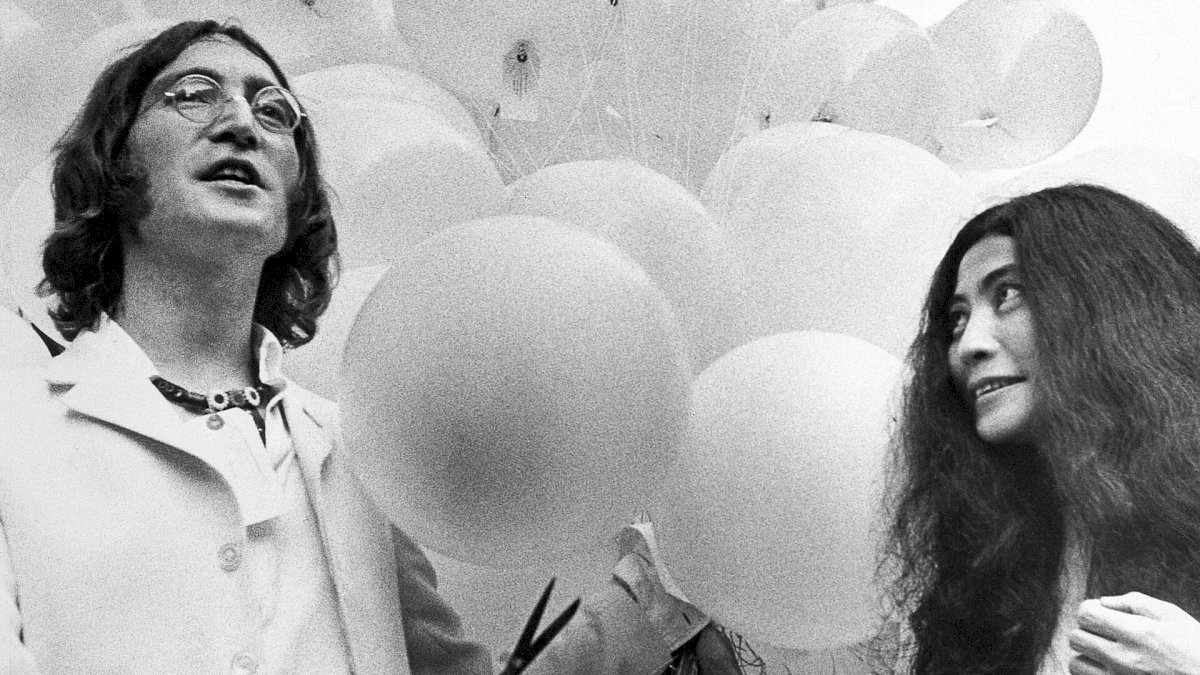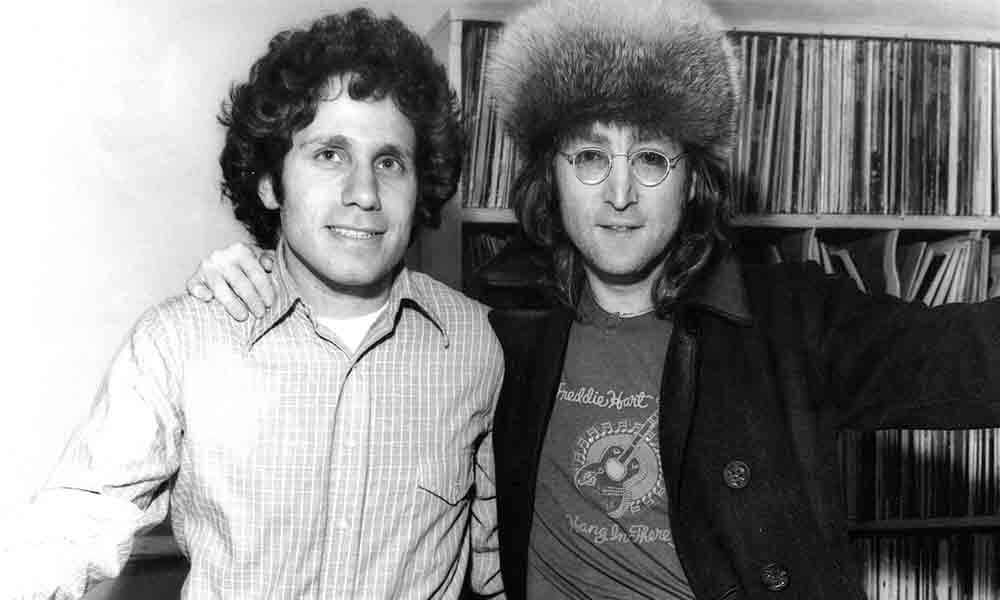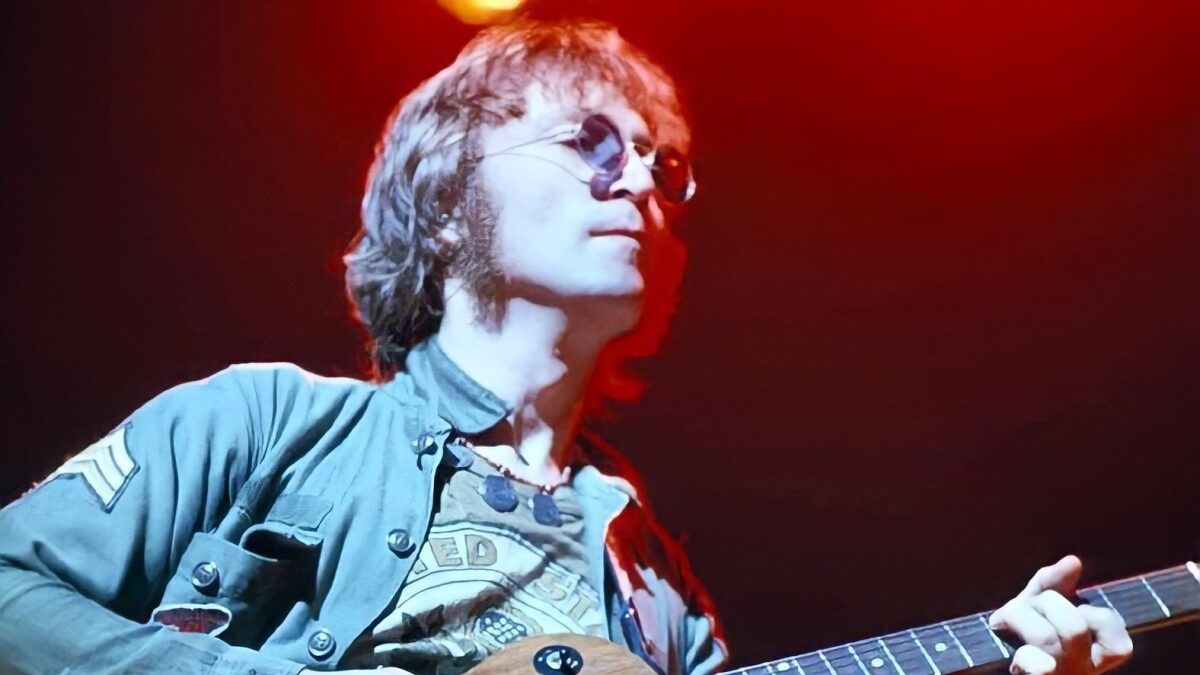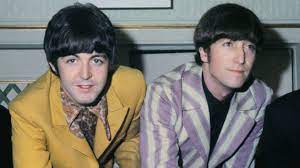In the summer of 1972, John Lennon, the legendary co-founder of The Beatles, stepped onto the stage at Madison Square Garden for the 'One to One' benefit concert. This event, organized to raise funds for mentally challenged children, marked a pivotal moment in Lennon's solo career and remains etched in the annals of rock history.
(Watch the video below)

The Context: A Troubled Era

The early 1970s were a tumultuous period for Lennon and the world. The Beatles had disbanded in 1970, and Lennon was navigating the complexities of his solo career amidst personal and political turbulence. The Vietnam War raged on, and the counterculture movement of the 1960s had given way to a more disillusioned atmosphere. Lennon, always a vocal advocate for peace and social justice, found himself at a crossroads.
Amidst this backdrop, the 'One to One' concert emerged as a beacon of hope. Organized by Lennon and his wife Yoko Ono, the event aimed to raise funds for the Willowbrook State School, a facility for mentally challenged children in Staten Island. Lennon's commitment to social causes was well-known, and this concert provided him with a platform to channel his artistry toward a meaningful and humanitarian cause.
The Concert Concept: Intimacy at Madison Square Garden
What set the 'One to One' Festival apart was its unique seating arrangement. The stage was positioned at the center of the arena, surrounded by the audience on all sides. This configuration created an intimate atmosphere, fostering a sense of connection between the performer and the audience—a departure from the traditional stage setup that defined most concerts of the time.
For Lennon, this was a deliberate choice. The concert was meant to be a personal experience, breaking down the barrier between artist and fan. This idea of 'one to one,' person to person, reflected Lennon's desire to forge a direct connection with his audience, a sentiment that would define the spirit of the performance.
The Setlist: A Journey through Lennon's Solo Catalog

As the lights dimmed at Madison Square Garden on August 30, 1972, anticipation filled the air. Lennon, joined by a stellar band that included guitarist David Spinozza, drummer Jim Keltner, and bassist Klaus Voormann, embarked on a musical journey that spanned his solo career.
The setlist featured a mix of Lennon's solo hits and deep cuts. Classics like "Imagine," "Instant Karma," and "Mother" were interwoven with tracks from his then-recent album, "Some Time in New York City." The eclectic mix showcased Lennon's versatility as a songwriter, from poignant ballads to politically charged anthems.
Notably, the performance of "Mother" was a moment of raw emotion. The song, delving into Lennon's complex relationship with his parents, became a cathartic expression on stage. The intensity of the performance resonated with the audience, who witnessed Lennon baring his soul in a way that was both vulnerable and empowering.
Surprise Guests: A Star-Studded Affair

As if the intimate setting and powerful setlist weren't enough, the 'One to One' Festival also featured surprise guest appearances. Stevie Wonder, a musical titan in his own right, joined Lennon on stage for a memorable rendition of "Yer Blues." The chemistry between the two artists was palpable, and the collaboration added an extra layer of magic to the already enchanting evening.
The surprise collaborations didn't end there. Roberta Flack joined Lennon for a rendition of "Jealous Guy," showcasing the diversity of influences that shaped Lennon's solo work. These impromptu partnerships added an element of spontaneity to the concert, making it an unforgettable experience for both the performers and the audience.
The 'One to One' Album: Immortalizing a Moment in Time

The impact of the 'One to One' Festival reached beyond the confines of Madison Square Garden. The concert was recorded and later released as the "Live in New York City" album, capturing the essence of that historic evening. The album, featuring selected tracks from the concert, became a testament to Lennon's ability to connect with his audience on a deeply personal level.
"Live in New York City" not only showcased the brilliance of Lennon's performance but also served as a time capsule, preserving the atmosphere of the early 1970s. The album's cover, a photograph of Lennon during the concert, became an iconic image that encapsulated the intimacy and intensity of that evening.
Impact on Lennon's Solo Career

The 'One to One' Festival marked a turning point in John Lennon's solo career. It reaffirmed his ability to captivate an audience without the Beatles' collective magic, showcasing the strength and depth of his solo catalog. The concert's success demonstrated that Lennon could not only survive but thrive as a solo artist, forging his own path in the music industry.
The intimate nature of the 'One to One' performance also left an indelible mark on Lennon's approach to live shows. The idea of breaking down the barrier between artist and audience continued to influence his subsequent performances, reflecting a desire to connect with fans on a more personal level.
A Night etched in Musical History

The 'One to One' Festival of 1972 stands as a testament to the enduring power of music to inspire change and forge connections. John Lennon's performance at Madison Square Garden transcended the boundaries of a typical concert, becoming a communal experience that resonated with the social and political climate of the time.
As we revisit the 'One to One' Festival through the lens of history, we are reminded not only of Lennon's musical genius but also of his unwavering commitment to using his art for a greater purpose. The echoes of that August night in 1972 continue to reverberate through the corridors of musical history, a reminder that sometimes, in the intimate space between artist and audience, the most profound moments are born.



